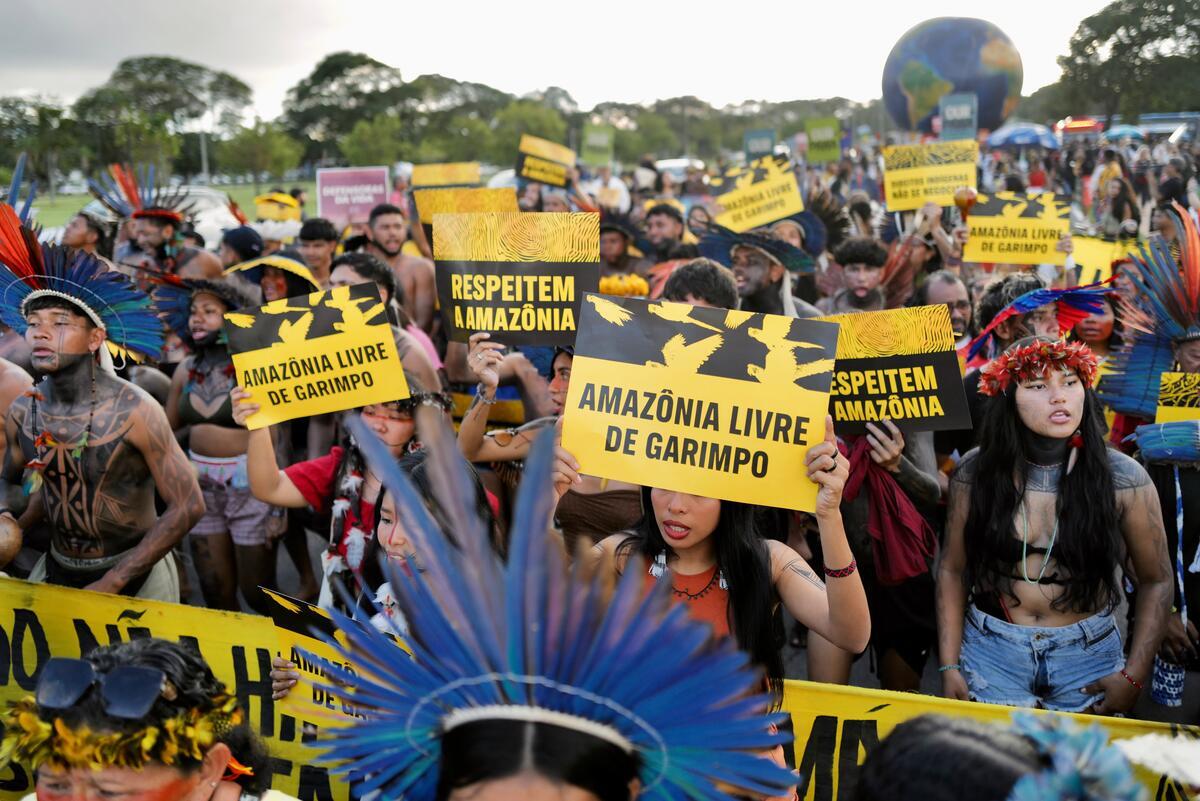Mandan, North Dakota — Ten years after the world watched the Indigenous-led protests at the Dakota Access Pipeline unfold, representatives from Greenpeace International (GPI) and two Greenpeace entities in the United States arrive at a Morton County courthouse to fight a meritless lawsuit brought by Energy Transfer (ET), today.
The trial is currently open to the public in the North Dakota courthouse. Multiple attempts by media and watchdog groups to petition the court for greater transparency and accessibility to the trial proceedings have been denied. The Greenpeace parties’ request for public livestreaming was denied, and a request for expanded media cover by a number of outlets and journalists was also recently denied.
The US-based fossil fuel pipeline company behind the Dakota Access Pipeline is seeking US$300 million in damages in one of the world’s most brazen examples of a Strategic Lawsuit Against Public Participation (SLAPP). ET’s lawsuit attempts to rewrite the history of the Indigenous-led protest at Standing Rock and could have a chilling impact on free speech in the US and beyond. Since 2017, GPI and Greenpeace organisations in the US have been defending against ET’s lawsuits[1], which ridiculously claim the protests were orchestrated by Greenpeace.
Deepa Padmanabha, Senior Legal Advisor, Greenpeace USA said: “Beyond the impact that this lawsuit could have on the Greenpeace entities, one of the most worrisome things about the case is that it could establish dangerous new legal precedents that could hold any participant at protests responsible for the actions of others at those protests. And you can imagine that this would have a serious chilling effect on anybody who wants to engage in protest.”
Kristin Casper, General Counsel, Greenpeace International said: “We are confident Greenpeace International, along with our co-defendants in the US, will ultimately prevail. We will defend Greenpeace International at trial, while also pursuing efforts to recover the costs incurred as a result of ET’s SLAPP suits in the US through legal proceedings in the Netherlands. We are grateful for the support we are receiving from around the world, because when the movement acts together, we win.”
GPI initiated the first test of the European Union’s anti-SLAPP Directive by filing a lawsuit in Dutch court against ET earlier this month. GPI seeks to recover all damages and costs it has suffered as a result of ET’s back-to-back, meritless lawsuits demanding hundreds of millions of dollars against GPI and the Greenpeace organisations in the US.[2]
Energy Transfer’s lawsuits are clear-cut examples of SLAPPs.[3] ET’s lawsuits have been an attempt to bury nonprofits and activists in legal fees, push them towards bankruptcy and ultimately silence dissent.
ENDS
Notes:
1. ET’s first lawsuit was filed in federal court under the RICO Act – the Racketeer Influenced and Corrupt Organizations Act, a US federal statute designed to prosecute mob activity. The case was dismissed, with the judge stating the evidence fell “far short” of what was needed to establish a RICO enterprise. The federal court did not decide the defamation or conspiracy claims so ET promptly filed a new case in a North Dakota state court with these and other state law claims
3. A report by the Coalition Against SLAPPs in Europe (CASE) documented 1049 SLAPP suits in Europe in the period 2010-2023, with 166 lawsuits initiated in 2023. Big Oil companies Shell, Total, and ENI have also filed SLAPPs against Greenpeace entities in recent years, with attempts at silencing ending in embarrassment for Shell and Total.
Contacts:
Greenpeace International Press Desk, +31 (0)20 718 2470 (available 24 hours), [email protected]
Join the Greenpeace SLAPP Trial WhatsApp Group for our latest updates
Source link
Greenpeace International www.greenpeace.org



